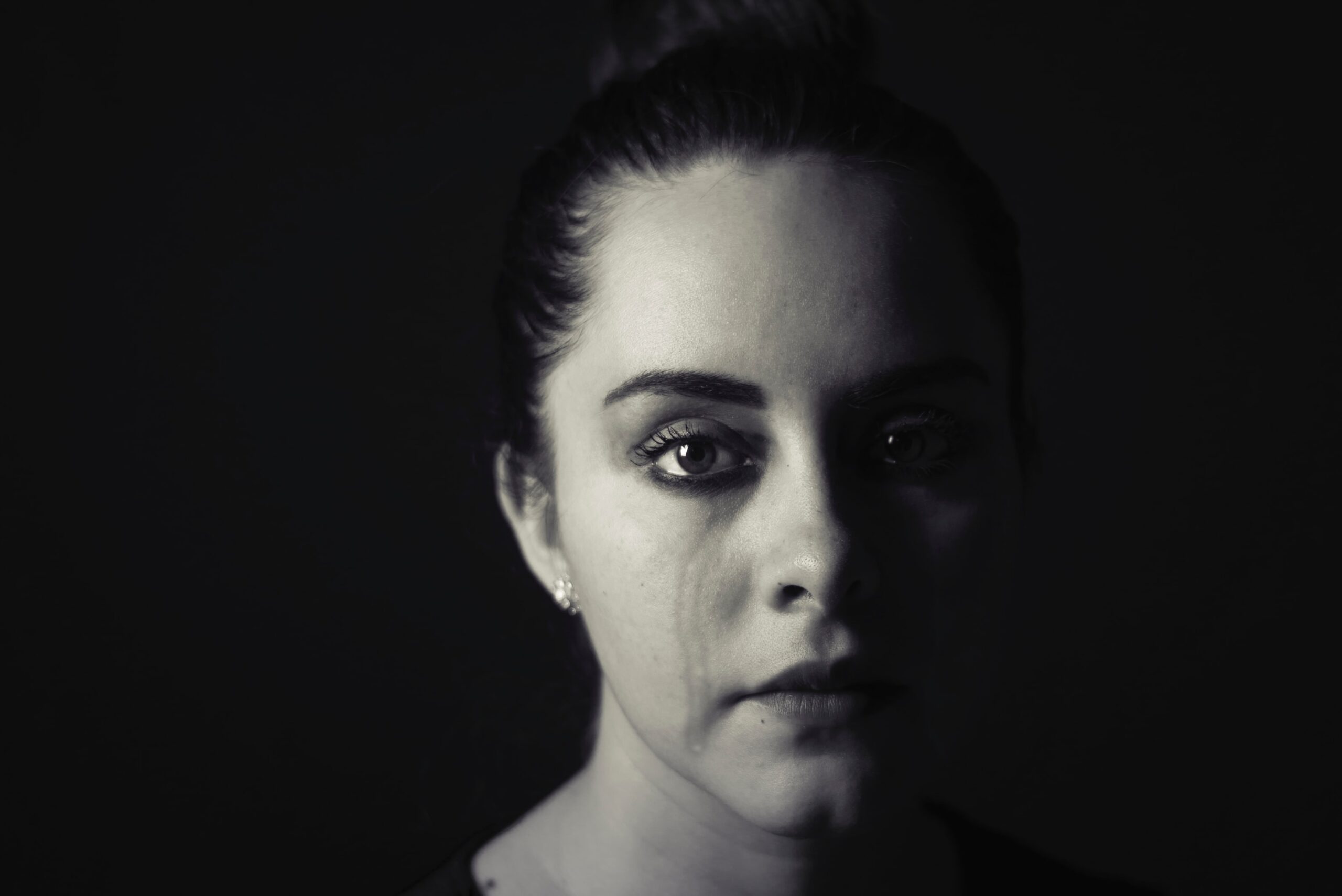Emotional trauma is usually associated with being bullied, discriminated against, or abused, or having experiencing ongoing threats. The loss of a loved one or even being a witness to a catastrophic event can also have the same effect.
When you are emotionally traumatised, the world around you becomes scary and unsafe. The related fear and pain actually affects the brain by essentially re-wiring it. This will stop us from being our true selves. But with the right care and treatment, you can heal from emotional trauma and become the person you always wanted to be.

Harvard Medical School discusses protecting your brain from stress. The following snapshot from an article by Harvard Health Publishing talks about how the brain isn’t a stand-alone unit. It is a group of different parts that all work together to achieve varied tasks.
For example, if you are in a dangerous or emotionally taxing situation, the amygdala (the part of your brain that governs your survival instincts) may take over, leaving the parts of your brain that help to store memories and perform higher-order tasks with less energy and ability to get their own jobs done.
https://www.health.harvard.edu/mind-and-mood/protect-your-brain-from-stress
Often through no fault of your own, you have been left with emotional damage from the actions of others. We can’t control what other people do; however, we can control how we interact with people and how we protect ourselves. Emotional trauma can occur because of many reasons. Here are some common examples:
- Verbal abuse
- Neglect
- Harassment in the workplace
- Loss of a loved one
- Witnessing a catastrophic event
- Being in high stress relationships (romantic or non-romantic)

All of these can lead to developing some unhealthy coping mechanisms as we seek to reduce the emotional pain.
In an attempt to forget the past and to control their emotions, many people turn to substances, such as drugs or alcohol, which can very easily lead to substance use disorders if left unchecked.
By the same token, some people turn to food to cope with unresolved issues, which can lead to weight issues or eating disorders.
As well, some people turn to risky and dangerous behaviors, preferring the thrill of the moment to sitting with their emotions and memories.
https://www.psychiatryfortworth.com/blog/5-long-term-effects-of-emotional-trauma

So how does emotional trauma begin and what are the signs to look out for? The following are 3 common examples:
1. Bullying.
When I was threatened by a bully with a barrage of messages, it included false accusations and a controlling tactic to prevent me from responding to the situation. They refused to meet with me face to face, or to speak by phone, or even to reply to any of my messages. My bully spoke their untrue and ugly statements, then just cut me off. The person then humiliated me in front of my family and excluded me from every event they were having. We have mutual friends who would be invited, so that made it even harder for me when I was excluded from these events.
The bullying escalated to the point that mutual friends would turn on me, believing the bully’s lies and false accusations. Only over time have I been able to share the truth with these friends and be accepted once again by them.
This form of emotional abuse is so hurtful because it’s a direct attack on our character. When you can’t defend yourself, it’s easy to become angry and overwhelmed. When you can’t enjoy the same friendship circles you once did, it can leave you feeling sad, anxious and depressed.

When you are a victim of bullying or harassment, you can experience a wide range of emotions, ranging from mild embarrassment to extreme fear as a result of being in danger where your safety is compromised. No matter the situation, however, it never feels pleasant to be attacked or criticised by your peers. Bullying is a distinct social stressor because it represents a systematic form of interpersonal aggression coupled with intense feelings of powerlessness and defencelessness.
https://americanaddictioncenters.org/trauma-stressor-related-disorders/effects-being-bullied-harassed
2. Verbal abuse.
A few years ago, I was emotionally abused by an ex-boyfriend. It was horrendous, to say the least. He went from loving me one day to hating on me the next. It was so confusing and overwhelming that I couldn’t even hear myself think half the time. I would get messages and phone calls from him expressing his deep love and adoration for me and then when he was drunk he would emotionally abuse me.
Often he would then block me for days only to return with a message or phone call asking what our plans were going to be for that weekend. When I reminded him that we had broken up, he would say “I was only joking, we are not broken up”. He would even suggest that I was going insane and that I just didn’t recall the previous conversation accurately. He also liked to say that the break-up was “all in my head” and that I just needed to “calm down”. His behavior was the definition of “gaslighting”.
When I tried to end the relationship, he would say words like “you won’t find anyone else to love you” and “don’t try to think that you will ever get married. It’s never going to happen for you now”. Or even, “you must be cheating on me with other people and that’s why you want to end the relationship”.
All of this was untrue; however, after almost 2 years of this it did lead me into a spiral of depression and anxiety. I couldn’t manage to get out of bed, and my working life and ability to provide for myself were beginning to be affected. The abuse was emotionally traumatising to me — every single day.

Relationship PTSD, or post-traumatic relationship syndrome (PTRS) as researchers have proposed calling it, refers to the response a person may have to one or more exposures to a traumatic event within the context of a relationship with an intimate partner.
https://www.choosingtherapy.com/relationship-ptsd/
The Choosing Therapy Website helps us understand this emotional abuse even further:
Relationship PTSD can be difficult to recognize because it typically happens over a long period of time instead of one traumatic event (the difference between Complex PTSD and typical PTSD). As a result, PTRS can include a pervasive sense of feeling unsafe, out of control, shame or guilt, and thoughts that feel like they come out of nowhere and are difficult to get rid of.
https://www.choosingtherapy.com/relationship-ptsd/
These are some of the symptoms a victim will experience due to verbal abuse in a relationship:
- Lots of self-doubt
- Shame
- Confusion
- Low Self Esteem
- Fearful of others
- Feeling like they have lost control

Psych Central website gives us the following insight into emotional abuse and how it leaves the brain damaged:
These are some of the ways research suggests emotional abuse can impact your brain:
https://psychcentral.com/health/effects-of-emotional-abuse#brain-impacts
- Emotional understanding and empathy. Early emotional abuse could cause changes to the hippocampus that make it harder to empathize with the emotions of others.
- Self-awareness. Emotional abuse is linked to thinning of certain areas of the brain that help you manage emotions and be self-aware — especially the prefrontal cortex and temporal lobe.
- Epigenetic changes and depression. Research from 2018 has connected childhood abuse to epigenetic brain changes that may cause depression. Epigenetic refers to how your environment and behaviors affect your genes. In particular, the study found changes to certain genes in the hypothalamic-pituitary-adrenal (HPA) axis, which is an area of the brain that’s involved in the stress response.

3. Loss of life
The loss of someone in a traumatic event can leave us emotionally traumatised. I certainly felt this way after being in a fatal car accident. The loss of life coupled with the unexpected event was what caused so much emotional damage. The Centre For Anxiety Disorders talks about it in this way:
We know that survivors often experience depression or anxiety after the death of someone close. We don’t usually think about them having posttraumatic stress disorder (PTSD), but it can also happen, especially after a catastrophic death.
By definition, PTSD can occur when someone has “experienced, witnessed, or been confronted with a terrible event.” News of an unexpected death already brings up especially strong emotions because it catches us off guard. A tragic death magnifies those feelings.
https://www.centerforanxietydisorders.com/ptsd-sudden-death-loved-one/

There is hope after being emotionally traumatised. When I was going through this, I just didn’t want to live anymore, I felt there was no hope. Boy was I wrong. I took care of myself, took the time to heal, talked to a licenced therapist and did things that made me smile daily. By doing these things, I have been able to overcome and no longer live in a traumatised state of mind. My body and mind are well. I can give back to society in healthy ways and be the woman I always knew I could be.

